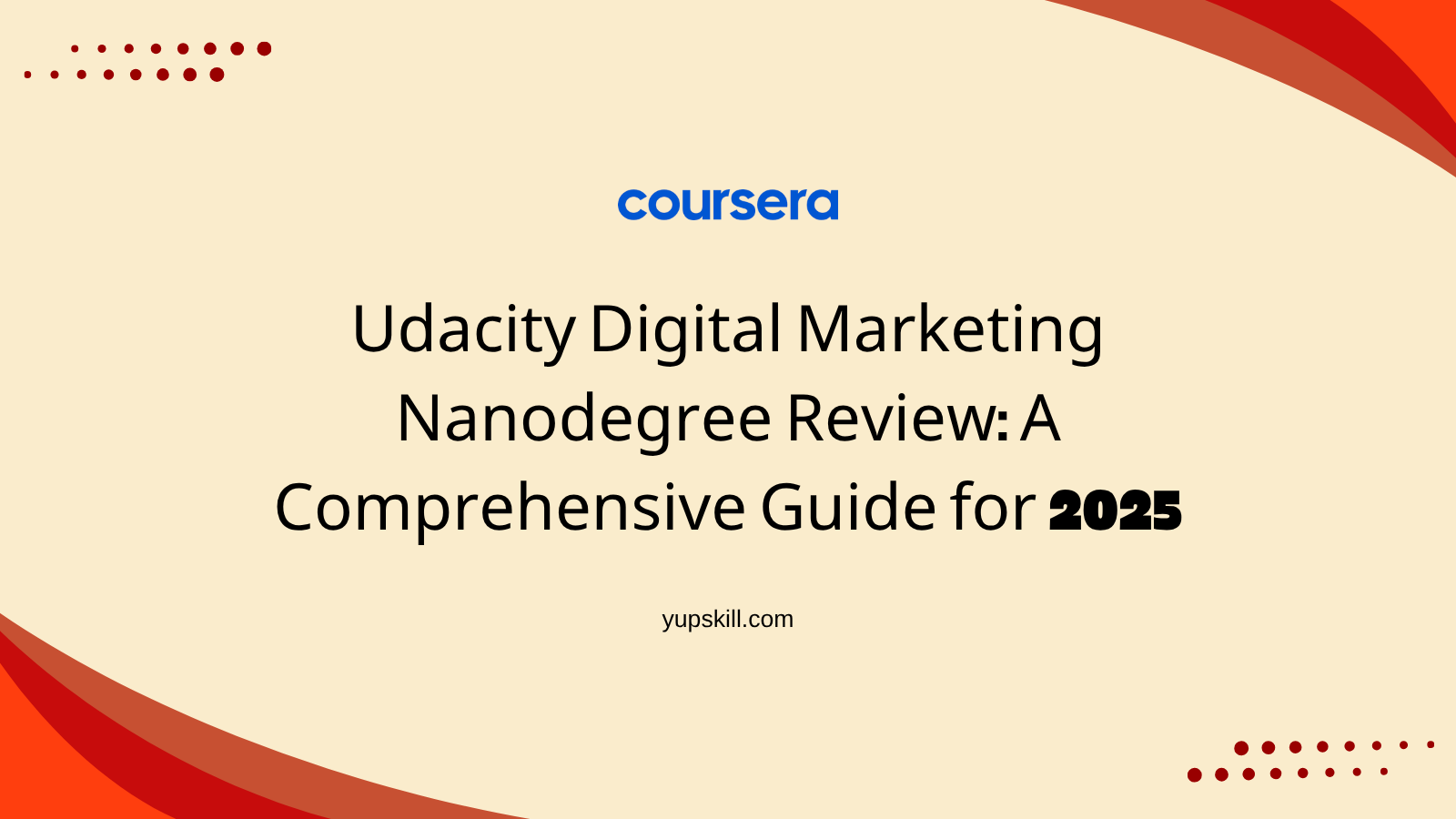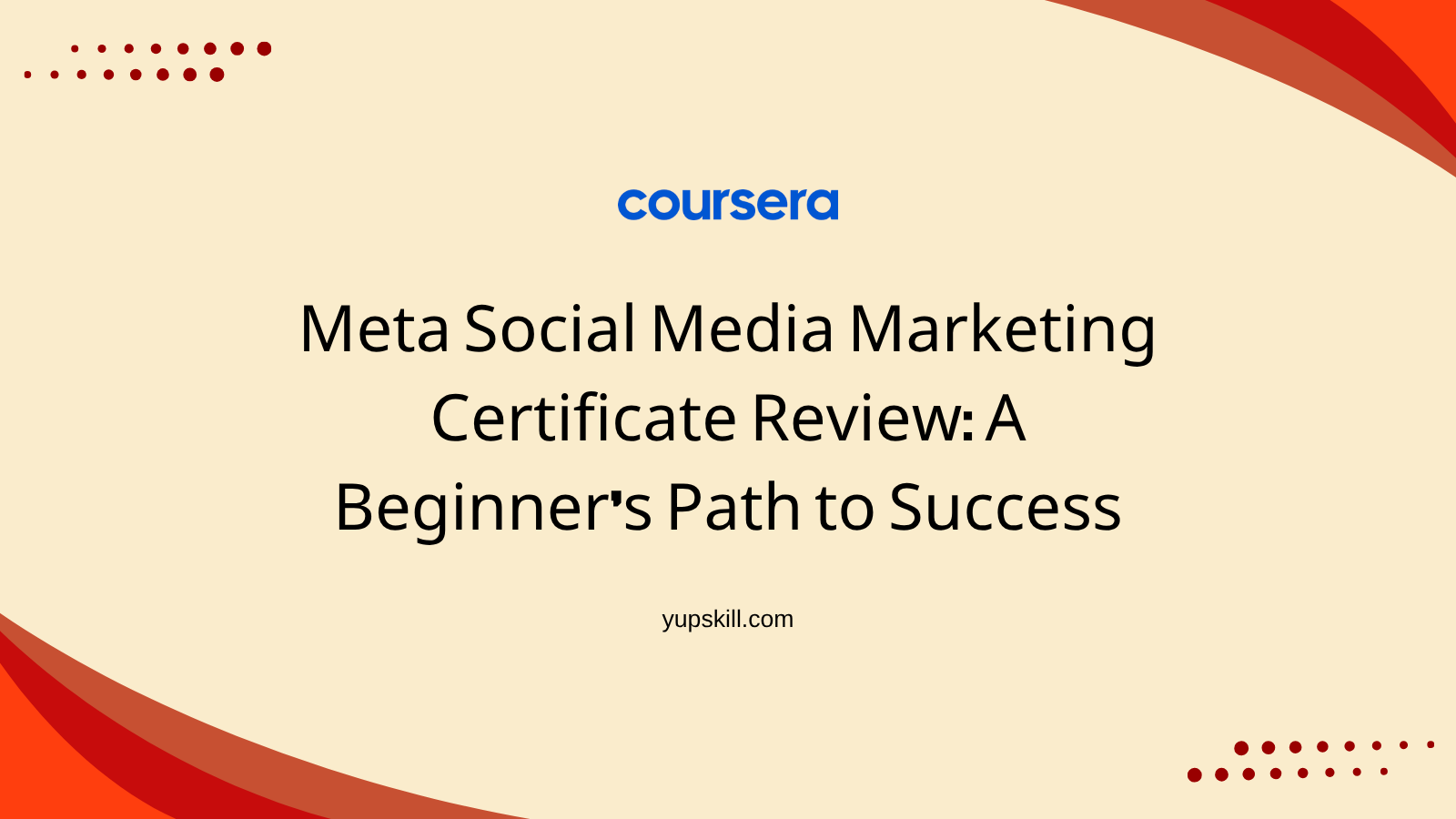In recent years, online education has grown exponentially, and platforms like Coursera and edX have become household names for people seeking flexible, high-quality learning options. These platforms offer learners the opportunity to study courses designed by prestigious universities and top companies from around the world, without having to physically attend a traditional classroom. This has made higher education more accessible than ever before, allowing people to learn from the best, at their own pace, and from virtually anywhere.
While both Coursera and edX are excellent platforms, they differ significantly in terms of course offerings, structure, pricing, certifications, and other factors. In this detailed comparison, we will dive into everything you need to know about both platforms: from their overview, features, and pricing, to the courses offered, customer support, and user experience.
By the end of this guide, you should have a clear understanding of the strengths and weaknesses of both platforms, helping you decide which one aligns best with your learning goals.
Overview of Coursera

Coursera was founded in 2012 by two Stanford University professors, Andrew Ng and Daphne Koller. The platform aims to provide universal access to the world’s best education by offering online courses, specializations, professional certificates, and even full degree programs. Coursera’s courses are developed in collaboration with top universities and companies, including Stanford, Yale, Princeton, Google, and IBM.
The platform currently boasts a large catalog of over 7,000 courses across a wide variety of subjects, including business, computer science, health, data science, social sciences, and humanities. Coursera offers both free and paid courses, with many of its programs and certificates costing a fee. The platform also allows learners to audit courses for free (i.e., access course content without receiving a certificate).
One of Coursera’s biggest selling points is its degree programs, which are offered in partnership with renowned universities. Through Coursera, students can earn bachelor’s and master’s degrees online in a wide range of disciplines, including computer science, business, and public health. These programs are fully accredited and are taught by university professors, providing learners with the same quality of education they would receive on campus.
Overview of edX
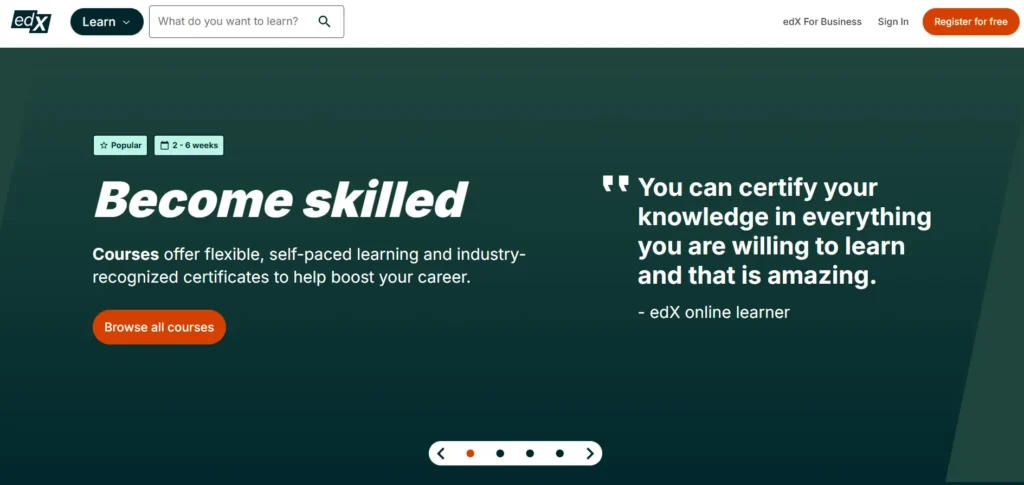
edX, founded in 2012 by Harvard University and the Massachusetts Institute of Technology (MIT), is a non-profit platform with the goal of increasing access to high-quality education globally. Similar to Coursera, edX offers online courses, MicroMasters programs, and full degrees, with content provided by top universities and organizations such as Harvard, MIT, UC Berkeley, Microsoft, and more.
edX’s focus is primarily on STEM (Science, Technology, Engineering, and Mathematics) courses, but it also offers programs in business, humanities, social sciences, and health. The platform currently offers over 3,000 courses across these disciplines, with options for both free and paid learning. As with Coursera, edX offers learners the ability to audit courses for free, but they must pay for certificates or verified credentials.
One of the most unique features of edX is its MicroMasters programs, which are designed to provide learners with specialized knowledge in certain fields. These programs can be applied toward full master’s degrees at participating universities, offering a more affordable and flexible pathway to advanced education.
Course Offerings
Coursera’s Course Catalog
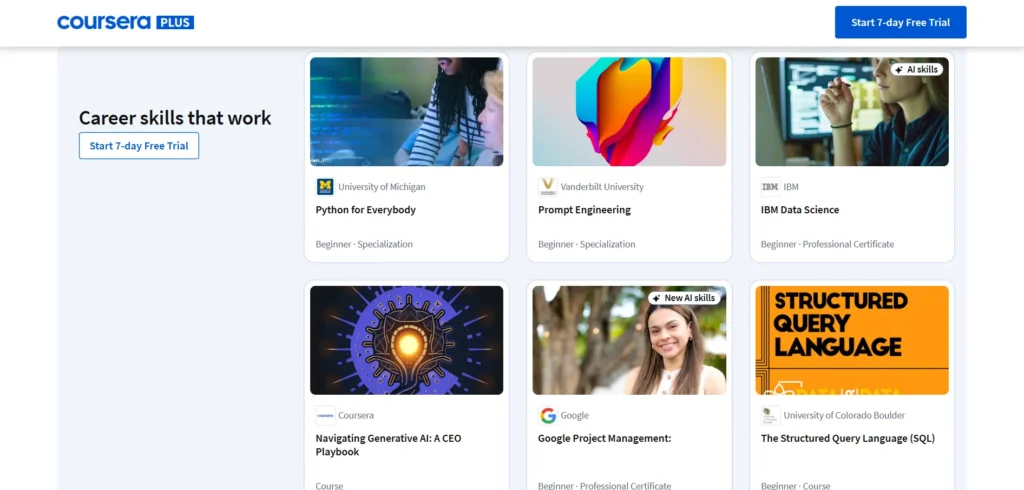
Coursera offers a vast range of courses spanning multiple disciplines. These include:
- Computer Science: Courses on programming, artificial intelligence, data science, machine learning, and more. Popular options include Google IT Support, IBM Data Science, and Machine Learning by Stanford University.
- Business: Courses on entrepreneurship, marketing, business strategy, finance, and more. Examples include Google IT Support, Financial Markets by Yale University, and Business Analytics by Wharton School of the University of Pennsylvania.
- Social Sciences and Humanities: Courses on psychology, history, political science, and more. Popular courses include Social Psychology by Wesleyan University and The Science of Well-Being by Yale University.
- Health and Medicine: Courses on health-related topics like public health, epidemiology, and medical research. Notable courses include Epidemiology for Public Health and Introduction to Global Health by the University of Copenhagen.
- Arts and Personal Development: Courses on personal growth, writing, photography, and other creative subjects. Examples include Creative Problem Solving by University of Minnesota and Photography Basics and Beyond by Michigan State University.
Coursera also offers specializations, which consist of a series of related courses designed to help learners develop expertise in a specific field. In addition to specializations, Coursera offers professional certificates in partnership with major companies such as Google, IBM, and Facebook. These certificates are designed to help learners develop skills that are directly applicable in the job market.
edX’s Course Catalog
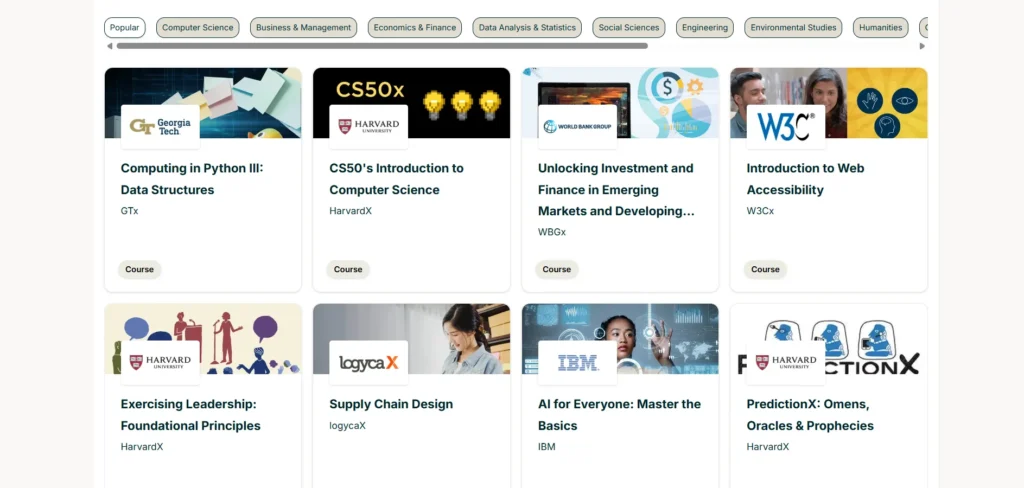
While edX also offers a diverse range of subjects, its strongest focus is on STEM-related fields, particularly computer science, data science, engineering, and mathematics. Examples of popular edX courses include:
- Computer Science and Engineering: Courses on coding, algorithms, cybersecurity, and hardware. Popular options include CS50’s Introduction to Computer Science by Harvard University and The Analytics Edge by MIT.
- Business and Management: Courses on business strategy, marketing, and entrepreneurship. Examples include Digital Transformation by Boston University and Business Analytics by Columbia University.
- Data Science: edX offers in-depth courses and MicroMasters programs in data science, machine learning, and artificial intelligence. Popular choices include Data Science and Machine Learning by UC Berkeley and MicroMasters in Data Science by UC San Diego.
- Humanities and Social Sciences: edX offers courses in history, political science, and psychology, though they are generally fewer compared to Coursera’s catalog. The Civil War and Reconstruction by Columbia University is a notable course in this category.
Additionally, edX offers MicroMasters programs, which are advanced, graduate-level programs designed to provide deep, specialized knowledge in specific fields. For instance, the MicroMasters in Data Science by UC San Diego is a popular offering for learners pursuing careers in data science and analytics.
Pricing and Financial Aid
Coursera Pricing
Coursera’s pricing structure is flexible and can vary greatly depending on the type of course or program:
- Individual Courses: Most individual courses on Coursera are free to audit, but if you want to earn a certificate or access assignments, you will need to pay a fee. Typically, the price ranges from $29 to $99 per course.
- Specializations and Professional Certificates: These generally cost between $39 and $79 per month, depending on the program. A specialization might take several months to complete, so the total cost can add up.
- Degree Programs: Coursera offers accredited online degree programs in partnership with universities. These programs tend to be significantly more expensive, with costs ranging from $9,000 to $25,000 per degree.
- Financial Aid: Coursera offers financial aid to learners who are unable to afford the fees for certificate courses. Learners can apply for financial aid through the platform, and if approved, they can take courses for free.
edX Pricing
edX’s pricing structure is similar to Coursera’s but with some variations:
- Individual Courses: Most edX courses are free to audit, but learners must pay for a verified certificate to receive formal recognition of completion. The cost of a verified certificate ranges from $50 to $300.
- MicroMasters Programs: MicroMasters programs on edX are more expensive than individual courses. Prices typically range from $500 to $2,000, depending on the program and the institution offering it.
- Degree Programs: edX offers online degrees in partnership with universities such as MIT, Harvard, and UC Berkeley. These degrees can cost anywhere from $10,000 to $25,000, making them a more affordable option compared to traditional on-campus degrees.
- Financial Aid: Like Coursera, edX offers financial assistance for learners who cannot afford the fees for certificates or degree programs. Learners can apply for financial aid directly on the platform.
Customer Support
Coursera Customer Support
Coursera provides excellent customer support to both free and paid users:
- 24/7 Support: Coursera offers 24/7 customer support for learners enrolled in paid courses and degree programs. This ensures that any issues with billing, technical difficulties, or course-related queries are resolved promptly.
- Help Center and FAQs: Coursera has an extensive help center and a comprehensive FAQ section that covers common issues, such as payment problems, course access, and account issues.
- Community Forums: Coursera also has a community forum where learners can ask questions, interact with instructors and peers, and share their experiences.
edX Customer Support
edX offers support through:
- Business Hours Support: Unlike Coursera, which offers 24/7 support, edX provides customer support during business hours. However, the platform’s support team is generally responsive, and most inquiries are resolved quickly.
- Help Center: edX has a help center with guides on technical issues, course-related concerns, and account problems. The platform also provides a dedicated forum where learners can ask questions and interact with others.
- Discussion Boards: edX includes discussion boards in its courses, allowing students to engage with instructors and fellow learners.
Conclusion
Both Coursera and edX are fantastic platforms for online learning, but they have different strengths and cater to different audiences.
- Coursera is the better choice for learners seeking a wide variety of courses across multiple disciplines and industry-recognized certificates. The platform’s flexibility and diverse offerings make it ideal for individuals looking to develop career-focused skills or earn a degree online.
- edX, on the other hand, excels in providing advanced programs in STEM fields, including its MicroMasters programs and high-quality online degrees. If you are looking for in-depth learning in fields like data science, computer science, and engineering, edX’s offerings are hard to beat.
Your choice ultimately depends on your learning goals, whether you want a broad range of courses or specialized knowledge, and how much you’re willing to invest in your education.
FAQs
Which platform offers more courses?
Coursera offers over 7,000 courses, while edX has over 3,000 courses.
Can I earn a degree online from these platforms?
Yes, both platforms offer accredited online degrees.
Are certificates from these platforms recognized by employers?
Yes, certificates from both Coursera and edX are widely recognized by employers.
Do I need to pay to access courses?
Both platforms allow you to audit courses for free, but you will need to pay if you want a certificate.
Which platform is better for STEM subjects?
edX is the better platform for STEM subjects, especially with its MicroMasters programs.
Can I learn at my own pace on both platforms?
Yes, both platforms offer self-paced courses, though some programs have fixed schedules.


